Magento vs WooCommerce: Which is the Right Choice for 2023
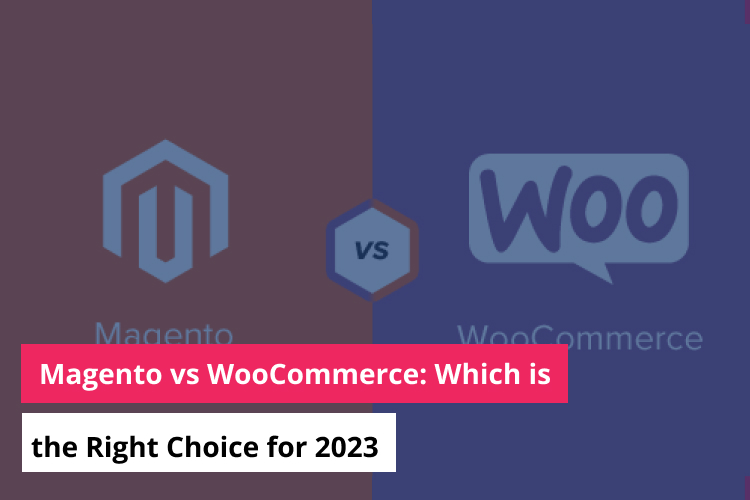
With millions of new online stores opening each year, e-commerce has integrated itself into the current world. When you take the fierce competition into consideration, the choice of an e-commerce platform gets even more crucial to the success of your business.
Two of the most popular e-commerce platforms are Magento and WooCommerce, and each has certain advantages and features. Magento is a powerful and adaptable e-commerce platform with cutting-edge features and customization options that are made to meet the demands of companies of all sizes.
On the flip side, WooCommerce is a more user-friendly and reasonably priced e-commerce solution. It’s designed to be easy to use and is a good fit for small to medium-sized online stores, WordPress users, and businesses with limited technical expertise. With its low cost and basic e-commerce features, WooCommerce is an attractive option for businesses with limited budgets.
Ultimately, the choice between Magento and WooCommerce will depend on many factors, including features, customization options, ease of use, security, and cost. In this blog, we’ll take a closer look at both platforms, compare their features and benefits, and help you determine which one is the right choice for your business in 2023.
Magento: A Comprehensive Overview 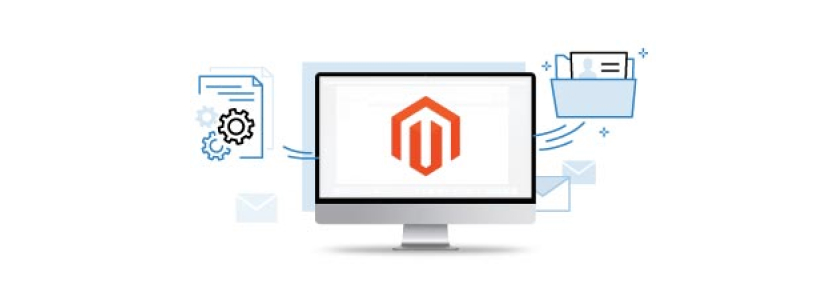
The initial version of Magento, a robust open-source e-commerce platform, launched in 2008. It is one of the most popular e-commerce platforms in the world, and it is used by a wide range of businesses, from small startups to large enterprises.
Features of Magento:
With its many capabilities, Magento is a great platform for creating e-commerce websites. A few of Magento’s essential features are:
Catalog Management:
With the help of Magento’s feature-rich catalog management system, you can manage and arrange your products, categories, and characteristics with ease. You may manage product pictures and videos, add and edit information about the product, and set prices and offers.
Order Management:
With the help of Magento, you can manage and process customer orders, keep track of order status, and manage the shipping and payment procedures.
Payment Processing:
You can quickly handle consumer payments using Magento’s integration with a variety of payment gateways, including PayPal, Authorize.net, and Braintree.
Tax and Shipping:
With Magento, you can set up customizable tax and shipping policies for various areas and countries as well as select from a variety of delivery alternatives based on the weight, location, and cost of the order.
Customer Management:
You can manage client accounts, track customer activity, manage customer orders, and manage customer reviews using Magento’s robust customer management system. Along with these capabilities, the site has others like wish lists, product comparisons, and order tracking.
Marketing and Promotions:
To assist you in generating traffic for your website and boosting sales, Magento provides a number of marketing and promotional options. These resources include cross-sell and up-sell campaigns, promotional codes, and email marketing.
Mobile-Friendly:
Magento is very mobile-friendly, providing a responsive design that adjusts to different screen sizes and devices. The platform offers various tools for mobile optimization.
Customizable Themes:
Magento offers a selection of scalable themes and templates that can be used to create an original and eye-catching online store. You may also install custom modules and extensions.
Advantages of Magento:
Magento is a great option for creating e-commerce websites because it offers a number of benefits.
Large community:
Magento has a large and active community of users, developers, and partners, which makes it easy to find support and resources for your e-commerce site.
Extensive range of Plugins and Extensions:
To give your website new features and functionalities, you can utilize one of the many plugins and extensions available for Magento.
Large product catalogs:
Magento is designed to handle large product catalogs, making it ideal for businesses that have a large number of products or need to manage a growing product line.
Multiple stores and websites:
Magento allows businesses to manage multiple stores and websites from a single admin panel, making it easier to scale and expand your business.
Customizable Architecture:
Magento’s architecture is highly customizable, which means that businesses can add new features and functionality as needed to support growth and expansion.
Advanced caching and performance optimization:
Magento includes advanced caching and performance optimization features that can help improve the speed and performance of your online store, even as your business grows.
Third-party integrations:
Magento integrates with a wide range of third-party services, including payment gateways, shipping providers, and more, making it easy to add new capabilities and support growth as your business evolves.
By leveraging these features, Magento can help businesses grow and expand over time, while still providing a high degree of flexibility, customization, and control over the look, feel, and functionality of their online store.
Limitations of Magento:
Magento is a powerful and feature-rich e-commerce platform, but like any platform, it also has some disadvantages that businesses should be aware of.
Complexity:
In order to set up and operate Magento, a high level of technical knowledge is necessary. Small enterprises or people without technical expertise might find it challenging to begin using Magento as a result.
Cost:
Even though Magento is an open-source platform, setting it up and keeping it running can be costly, especially if you need to add extra extensions and plugins.
Performance:
Magento can be slow and resource-intensive, which can lead to slow loading times and a poor user experience.
Security vulnerabilities:
Magento has been the target of several security vulnerabilities in the past, and it is important to keep the platform and its extensions and plugins up to date to ensure that your online store is secure.
Requires technical expertise for customization:
While Magento provides a high degree of customization, this can also make it difficult to make changes to your online store, as it can require a significant amount of technical expertise.
It’s worth noting that many of these disadvantages can be addressed by partnering with an experienced Magento development agency like Imenso Software, which can provide ongoing support, technical expertise, and development services to help your business succeed with Magento.
WooCommerce: A Comprehensive Overview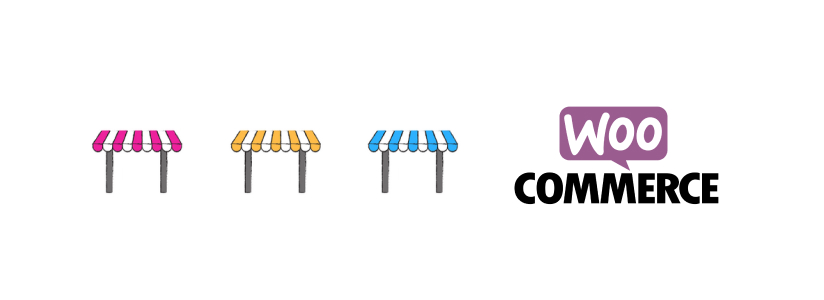
For the WordPress platform, WooCommerce is an extremely popular open-source e-commerce plugin. It was first released in 2011 and has since become one of the most widely used e-commerce platforms in the world. Let’s take a comprehensive look at WooCommerce, including its features, benefits, and limitations.
Features of WooCommerce:
WooCommerce is a great option for creating e-commerce websites because it has a wide range of features. Some of the key features of WooCommerce include:
Customizable Themes:
WooCommerce integrates seamlessly with WordPress, allowing you to use any of the thousands of customizable WordPress themes to create a unique and professional-looking online store.
Product Management:
WooCommerce provides a comprehensive product management system that allows you to easily add, edit, and manage your products. You can add product descriptions, images, and videos, and manage product categories, tags, and attributes.
Payment Processing:
Several payment methods are supported by WooCommerce, including Stripe and PayPal. The platform also provides plenty of plugins to add any payment processors of your preference, to provide secure and convenient payment processing.
Shipping and Tax Options:
You can set up shipping prices depending on weight, destination, and other factors with WooCommerce’s versatile shipping and tax options. Additional delivery options supported by the platform include flat-rate delivery, free delivery, and local pickups.
Order Management:
WooCommerce offers a robust order management system that enables you to manage customer orders, track order status, and handle shipping and payment processes. The platform also includes features like order tracking, invoicing, and email notifications.
Customer Management:
WooCommerce provides a simple and effective customer management system that allows you to manage customer accounts, track customer activity, and handle customer inquiries and support requests.
Advantages of Woocommerce:
The following are some of WooCommerce’s main advantages:
Easy to Use:
Anyone can set up and run an online store thanks to WooCommerce’s user-friendly and intuitive interface. The platform has a simple interface, allowing you to manage products, orders, and customers with just a few clicks.
Low cost:
WooCommerce is an affordable platform, making it a perfect option for companies on a tight budget.
Extensive range of plugins and extensions:
WooCommerce includes a sizable collection of plugins and extensions that you can use to give your website new features and functionality.
SEO optimized:
WooCommerce is built to be SEO-friendly, providing a range of tools and features to help you optimize your site for search engines. These tools include customizable URLs, meta tags, and site maps, as well as the ability to manage redirects and use Google Analytics.
Limitations of WooCommerce:
While WooCommerce is a popular and user-friendly platform, it does have some limitations that you should be aware of. Some of the key limitations of WooCommerce include the following:
Limited scalability:
WooCommerce is intended to be a lightweight platform, which can make it difficult to scale up as your business grows. This can limit its long-term viability for larger businesses.
Limited customization options:
While WooCommerce provides a high degree of customization, it can still be limited compared to other platforms, such as Magento, which provides a more extensive range of customization options.
Dependence on Plugins:
WooCommerce is a plugin-based platform, which means that businesses will need to rely on third-party plugins to add additional functionality to their online store. This can make the platform more expensive and challenging.
Performance issues:
WooCommerce can be slow and resource-intensive, which can lead to slow loading times and a poor user experience, especially for businesses with a high volume of traffic.
Requires a WordPress site:
Since WooCommerce is a WordPress plugin, a WordPress website is a requirement in order to utilize it.
Magento vs WooCommerce: The Comparison
Magento and WooCommerce are two of the most widely used platforms for developing an online shop. Both platforms offer a wide range of features, but they differ in several key areas, such as scalability, customization, and cost.
Ease of Use:
Magento can be a more challenging platform to use, particularly for those without technical expertise. The platform can be complex to set up and manage, and you may need to hire a wooCommerce developer to help you get started.
Contrarily, WooCommerce is made to be user-friendly, making it a viable option for companies with less technical expertise. It is relatively easy to set up and manage, and the platform provides a range of resources and support to help you get started.
Scalability:
Magento is a powerful, scalable platform that is designed for large enterprises and high-volume e-commerce sites. It has a robust architecture that can handle large amounts of traffic and sales, and it offers advanced features such as multi-store management, multiple languages and currencies, and flexible shipping and payment options.
WooCommerce, on the other hand, is a more lightweight platform that is better suited to small and medium-sized businesses. It is built on WordPress, which is a flexible content management system that can be easily scaled as your business grows. However, if you’re planning on expanding your business to a large-scale operation, you may eventually outgrow WooCommerce and need to switch to a more robust platform like Magento.
Customization:
A large variety of themes, extensions, and plugins are available for use with Magento, making it easy to add new features and functionality to your online store. With Magento, you have the freedom to build a unique and customized store that meets your specific needs.
WooCommerce is also customizable but to a lesser extent.
While it offers a range of plugins and themes, the customization options are not as extensive as those offered by Magento. However, if you’re not looking for a highly customized store, WooCommerce may be a better option for you, as it’s much easier to use and requires less technical know-how.
Affordability:
The cost of setting up and maintaining an e-commerce store can vary greatly depending on the platform you choose. Magento is a more expensive option, as it requires a higher level of technical expertise and resources to set up and maintain. Additionally, Magento’s premium features and customization options come at a cost, and you’ll need to budget for extensions and plugins to add the features you need.
In contrast, WooCommerce is a free platform that costs little to set up and operate. However, you’ll need to pay for premium plugins and themes, and you’ll also need to budget for hosting and security, which can add up over time.
Security:
Magento is known for its advanced security features, which help to protect your site and your customer’s information. The platform is regularly updated to address security vulnerabilities, and it provides a range of tools and resources to help you secure your site.
WooCommerce is also a secure platform, but it may not have the same level of security features as Magento. It does, however, provide a variety of plugins that might assist you in improving the security of your website.
Magento vs WooCommerce: Which One is Better?
The choice between Magento and WooCommerce depends on your specific business needs and goals. Both platforms are popular e-commerce solutions that offer scalable and customizable options, but they have different strengths and weaknesses.
Magento is a more robust and feature-rich platform that is ideal for larger businesses and enterprise-level e-commerce operations. Although it has many capabilities and personalization choices, it is more difficult to set up and manage and has a higher learning curve.
WooCommerce is a more streamlined and user-friendly platform that is ideal for smaller businesses and startups. It works easily with WordPress, the most commonly used content management system (CMS) in the world, and is simple to set up and operate.
When to Choose Magento?
Magento is a good choice for e-commerce businesses in the following cases:
- Large and complex online stores: If you’re planning to launch a large or complex e-commerce store, Magento’s scalability, customization options, and advanced features may be a good fit for your needs.
- Businesses with multiple storefronts: Magento supports multichannel selling, making it a good choice for businesses that need to manage multiple storefronts, marketplaces, or mobile commerce sites.
- Businesses with high customizability need: Magento’s flexible architecture and a large library of plugins and extensions allow for a high degree of customization, making it a good choice for businesses that need to build a unique e-commerce experience.
- Businesses with high-security needs: Magento is designed with security in mind, and it provides many features to help protect your store and your customers’ data.
- Businesses with complex product catalogs: Magento’s product management capabilities, including support for multiple product types, product variations, and configurable products, make it a good choice for businesses with complex product catalogs.
Magento is best suited for businesses that are looking for a powerful and customizable e-commerce platform with a large and active community of users and developers.
When to Choose WooCommerce?
WooCommerce is a good choice for e-commerce businesses in the following cases:
- Small to medium-sized online stores: If you’re planning to launch a small to the medium-sized online store, WooCommerce’s simplicity, affordability, and ease of use may be a good fit for your needs.
- WordPress users: WooCommerce is a plugin for the popular WordPress content management system, so it’s a good choice for businesses that already use WordPress for their websites.
- Businesses with limited technical expertise: WooCommerce is designed to be easy to use, even for businesses with limited technical expertise, so it’s a good choice if you’re looking for a platform that’s simple to set up and manage.
- Businesses with limited budgets: WooCommerce is open-source software, so it’s free to use, and it has a large library of free and low-cost plugins and themes, making it an affordable option for businesses with limited budgets.
- Businesses with basic e-commerce needs: WooCommerce provides the essential features that most small to medium-sized e-commerce businesses need, including product management, checkout, and order management.
WooCommerce is a good choice for businesses that are looking for an affordable and simple e-commerce platform that does not require a lot of technical experience.
Wrapping it Up:
Magento and WooCommerce are both great platforms, but they cater to different types of businesses. If you’re running a large enterprise or high-volume e-commerce store, Magento is the way to go. However, if you’re a small to medium-sized business looking for a cost-effective and easy-to-use platform, WooCommerce is a better choice.
By carefully considering your business needs, budget, and technical expertise, you can make an informed decision and choose the platform that’s right for you. If you need assistance from the best e-commerce development team, contact the experts at Imenso Software!
Similar Posts
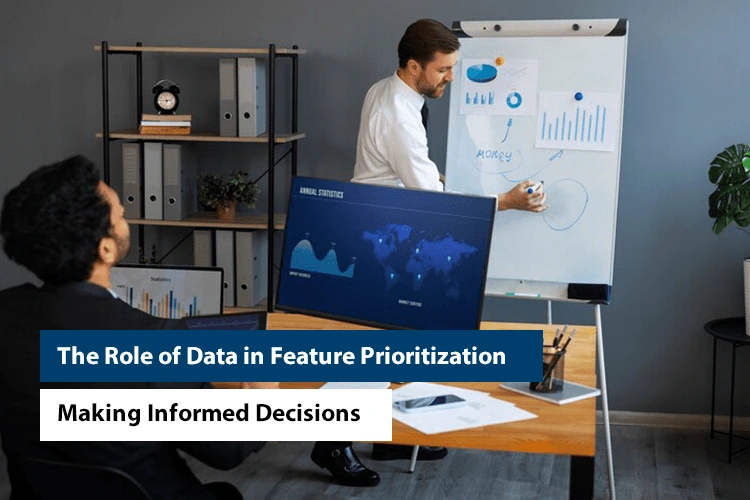
The Role of Data in Feature Prioritization: Making Better Decisions
Have you ever had a problem deciding which of the many good features should be implemented in your software roadmap? It remains a challenge for many organizations. In the current world environment user requirements and technological changes are not consistent. A poor decision torments resources and opportunities. Contrarily, a correct decision can enhance user satisfaction […]...
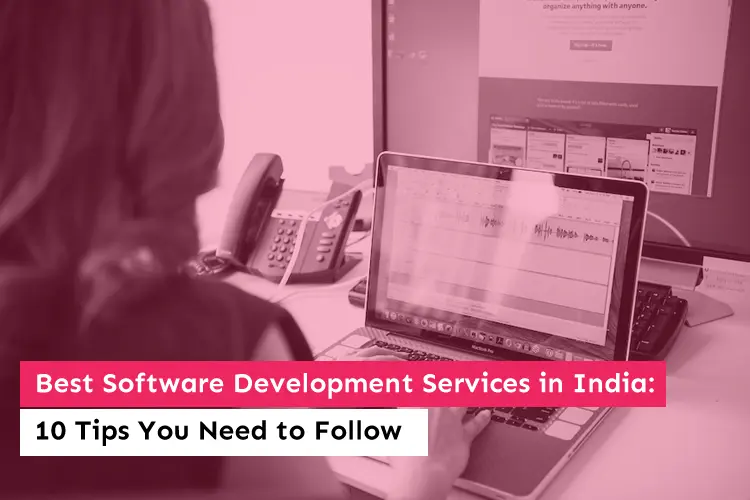
Best Software Development Services in India: 10 Tips You Need to Follow
Are you looking for the best offshore software development services? Stay along! Software is frequently misunderstood as simply technology, but it is much more. Of course, it is technology, but it is also an intuitive and conscious art. High-quality and reliable software is the foundation of any business, regardless of its size or scope of […]...

How to Pivot Your Product Strategy to Achieve Product-Market Fit
“I don’t understand what’s going wrong! After investing so many dollars in Facebook and Google Ads and driving traffic to my product, my revenue figure just won’t budge!” Believe it or not, as a provider of software development and digital marketing services, we hear it all too often! The reason? Prospects are intrigued by your […]...










